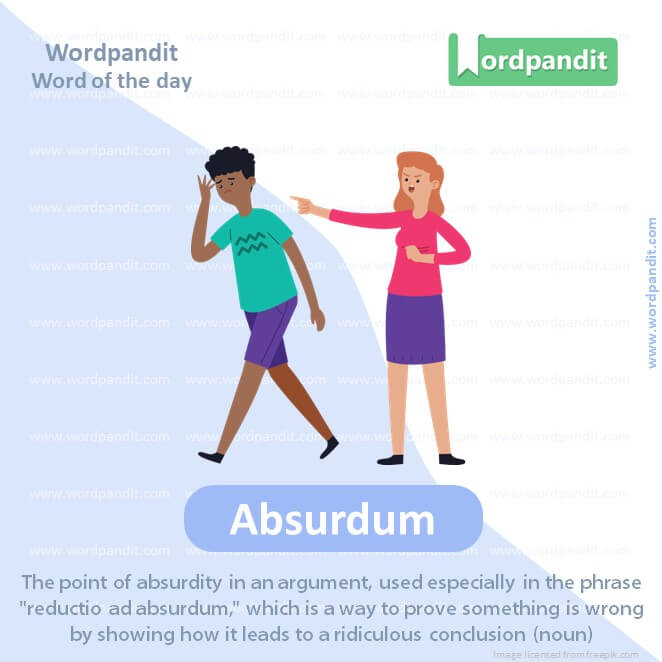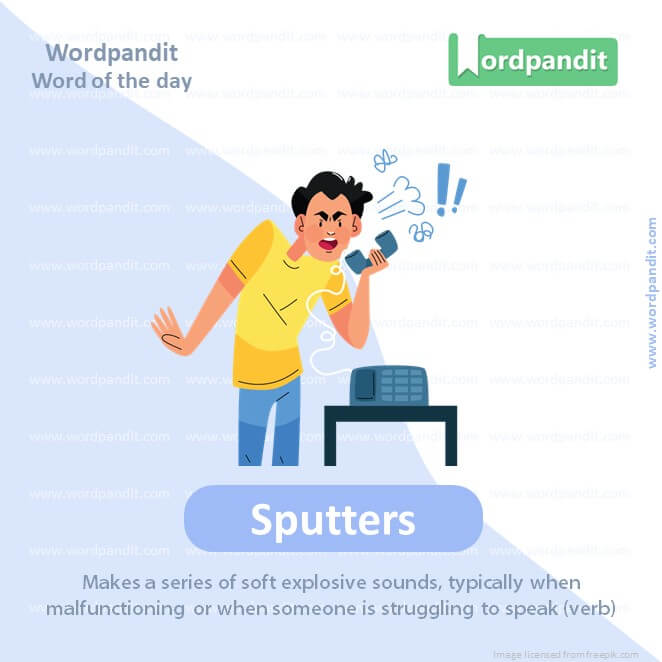Daily Vocabulary Words: List of Daily Used Words in Leading International Newspapers
Hi there. Welcome to this special section @ Wordpandit.
Our endeavour here is very simple: to highlight important daily vocabulary words, which you would come across in leading newspapers in the country. We have included the following newspapers in our selection:
• The New York Times
• The Washington Post
• Scientific American
• BBC
• The Guardian
• Psychology Today
• Wall Street Journal
• The Economist
We are putting in extensive work for developing your vocabulary. All you have got to do is be regular with this section and check out this post on a daily basis. This is your repository of words that are commonly used and essentially, we are posting a list of daily used words. Hence, this has significant practical application as it teaches you words that are used commonly in leading publications mentioned above.
Visit the website daily to learn words from leading international newspapers.

WORD-1: Conspiracies
CONTEXT: What Taylor Swift Conspiracies Reveal, According to Science
SOURCE: Scientific American
EXPLANATORY PARAGRAPH: Imagine a group of people whispering together, making a secret plan that no one else knows about. They might be planning to surprise someone with a gift or pretending to be spies. “Conspiracies” are like these secret plans, but they are usually about doing something wrong or harmful, and not everyone believes they are true.
MEANING: Secret plans made by two or more people to do something bad or harmful (noun).
PRONUNCIATION: kənˈspɪrəsiz
SYNONYMS: Plots, Schemes, Intrigues, Machinations, Cabals
USAGE EXAMPLES:
1. The movie was about a conspiracy to steal the crown jewels.
2. They uncovered a conspiracy against the government.
3. Rumors of conspiracies spread through the town.
4. He was fascinated by stories of ancient conspiracies.

WORD-2: Persecution
CONTEXT: America has always been a suspicious society, famed for its persecution of imaginary subversives, from witches to commies hiding under the bed.
SOURCE: Scientific American
EXPLANATORY PARAGRAPH: Imagine someone being picked on or treated very unfairly just because they are different or have different beliefs. This could mean not letting them join in games or being mean to them for no good reason. “Persecution” is when this kind of unfair treatment happens a lot and is very serious, making the person feel very sad and alone.
MEANING: The act of treating someone unfairly or cruelly over a long period because of their race, religion, or beliefs (noun).
PRONUNCIATION: ˌpɜːrsɪˈkjuːʃən
SYNONYMS: Oppression, Harassment, Victimisation, Abuse, Tyranny
USAGE EXAMPLES:
1. The book tells the story of his persecution because of his beliefs.
2. Many people have fled their countries to escape persecution.
3. The persecution of minorities in the region has been condemned.
4. She spoke out against the persecution of the innocent.

WORD-3: Absurdum
CONTEXT: This movement has even swept up pop idol Taylor Swift and the 2024 election, as you may have heard, into only the latest reductio ad absurdum of the era.
SOURCE: Scientific American
EXPLANATORY PARAGRAPH: Imagine arguing with your friend about whether a superhero could really fly. You say if they could fly because they wear a cape, then anyone wearing a cape, even a dog, could fly. That sounds silly, right? “Absurdum” is part of a phrase that means taking an idea to such a silly point that it shows the idea might not make sense.
MEANING: The point of absurdity in an argument, used especially in the phrase “reductio ad absurdum,” which is a way to prove something is wrong by showing how it leads to a ridiculous conclusion (noun).
PRONUNCIATION: abˈsərdəm
SYNONYMS: Ridiculousness, Illogicality, Nonsense, Folly, Irrationality
USAGE EXAMPLES:
1. He used reductio ad absurdum to disprove the argument.
2. The debate reached a point of absurdum when the examples became unrealistic.
3. Her essay discussed the concept of absurdum in satirical works.
4. The argument was taken to its absurdum, revealing its flaws.

WORD-4: Sputters
CONTEXT: We all know someone who sputters about climate change being a hoax, the 2020 election being stolen or microchips being in vaccines.
SOURCE: Scientific American
EXPLANATORY PARAGRAPH: Imagine trying to start an old car, and instead of starting smoothly, it makes coughing and spluttering noises before it finally starts. Or, when you’re so surprised or angry that you can’t speak clearly at first. “Sputters” means making those uneven, spitting noises, whether it’s a car engine or a person trying to say something.
MEANING: Makes a series of soft explosive sounds, typically when malfunctioning or when someone is struggling to speak (verb).
PRONUNCIATION: ˈspʌtərz
SYNONYMS: Splutters, Stammers, Stutters, Coughs, Falters
USAGE EXAMPLES:
1. The old engine sputtered before finally starting.
2. He sputtered in disbelief at the news.
3. The candle sputtered in the wind before going out.
4. She sputtered out an apology, clearly embarrassed.
WORD-5: Reelected
CONTEXT: The global pop icon is, according to right-wing media pundits and political figures, at the center of a Pentagon plot to rig the Super Bowl and help Joe Biden get reelected.
SOURCE: Scientific American
EXPLANATORY PARAGRAPH: Imagine your class votes for a class leader, and after some time, you vote again. If the same person gets chosen again, that person is “reelected.” It means they did a good job before, and everyone wants them to continue being the leader.
MEANING: Elected again to the same position or office (verb).
PRONUNCIATION: ˌriːɪˈlɛktɪd
SYNONYMS: Returned, Voted back in, Chosenagain, Reinstated, Reappointed
USAGE EXAMPLES:
1. The mayor was reelected for another term.
2. She was reelected as class president unanimously.
3. After a successful term, he hoped to be reelected.
4. The campaign worked hard for her reelection.
WORD-6: Absurdity
CONTEXT: This bonkers conspiracy narrative—with election deniers now openly rooting for the San Francisco(!) 49ers against the heartland’s Kansas City Chiefs in the Super Bowl—recently broke the Internet and was mocked by Jimmy Kimmel, Saturday Night Live and a Biden administration official who told Politico, “The absurdity of it all boggles the mind.”
SOURCE: Scientific American
EXPLANATORY PARAGRAPH: Imagine seeing a fish trying to ride a bicycle. That sounds really silly and impossible, right? “Absurdity” is when something is so silly or makes so little sense that it makes you laugh or wonder why someone would even think of it. It’s like a joke that’s funny because it’s so far from reality.
MEANING: The quality or state of being ridiculous or wildly unreasonable (noun).
PRONUNCIATION: əbˈsɜːrdɪti
SYNONYMS: Ridiculousness, Foolishness, Nonsense, Lunacy, Insanity
USAGE EXAMPLES:
1. The absurdity of the situation made everyone laugh.
2. He often pointed out the absurdity of everyday occurrences.
3. The movie’s humor relied on sheer absurdity.
4. She wrote a book highlighting the absurdity of modern life.

WORD-7: Incentives
CONTEXT: As the kids today say, 100 percent. But those same incentives motivate voices across the media spectrum, such as CNN and MSNBC, to report on (with rolled eyes) the ludicrous Swift conspiracy narrative, all of which pushed it into the mainstream.
SOURCE: Scientific American
EXPLANATORY PARAGRAPH: Imagine your parents tell you that if you clean up your room, you can have extra playtime or a treat. That extra playtime or treat is an “incentive.” It’s something given to encourage you to do something, like a reward for doing a good job or making a good choice.
MEANING: Rewards or offers that encourage people to do something (noun, plural).
PRONUNCIATION: ɪnˈsɛntɪvz
SYNONYMS: Rewards, Motivations, Enticements, Stimuli, Inducements
USAGE EXAMPLES:
1. The company offered incentives for employees to stay healthy.
2. Tax incentives were introduced to encourage investment.
3. They used a reward as an incentive for completing chores.
4. Incentives were given to students for good grades.
WORD-8: Wackier
CONTEXT: This feedback loop is a conspiracy-propagating machine and a big reason why it feels like Americans are getting wackier by the day.
SOURCE: Scientific American
EXPLANATORY PARAGRAPH: Imagine the funniest, most colorful clown at the circus, doing silly dances and making everyone laugh with crazy tricks. This clown is “wackier” than everyone else, meaning they’re more unusual, fun, and maybe a bit strange in a funny and entertaining way.
MEANING: More amusingly eccentric or unconventional than usual (adjective).
PRONUNCIATION: ˈwækɪər
SYNONYMS: Zanier, Quirkier, Funnier, More bizarre, More outlandish
USAGE EXAMPLES:
1. The sequel to the movie was even wackier than the first.
2. She had a wackier sense of fashion, full of bright colors and patterns.
3. The party became wackier as the night went on.
4. He’s known for his wackier ideas in meetings.
WORD-9: Lunacy
CONTEXT: Meanwhile, the whole cycle was algorithmically amplified on social media, which is where most of us got wind of the lunacy.
SOURCE: Scientific American
EXPLANATORY PARAGRAPH: Imagine someone trying to jump to the moon using a trampoline. That idea sounds so crazy and impossible, right? “Lunacy” is when something is so silly or unreasonable that it just doesn’t make sense, kind of like thinking you can jump to the moon. It’s used to describe actions or ideas that are really out there.
MEANING: The state of being insane or extremely foolish behavior (noun).
PRONUNCIATION: ˈluːnəsi
SYNONYMS: Madness, Insanity, Folly, Absurdity, Craziness
USAGE EXAMPLES:
1. The plan was dismissed as sheer lunacy.
2. They laughed at the lunacy of the idea.
3. His actions bordered on lunacy.
4. The old law was considered a piece of lunacy.
WORD-10: Denialism
CONTEXT: The danger, especially when combined with political demagoguery, came to fruition with the January 6 Capitol riot, which was incited by Trump’s election denialism, an out-and-out conspiracy theory.
SOURCE: Scientific American
EXPLANATORY PARAGRAPH: Imagine someone who covers their ears and says “la la la, I can’t hear you” when you try to tell them something true, like that it’s raining outside. “Denialism” is when people refuse to believe something is true, even when there’s a lot of evidence. It’s like pretending something isn’t happening because they don’t want to accept it.
MEANING: Refusal to acknowledge an empirically verifiable reality, often associated with historical events or scientific findings (noun).
PRONUNCIATION: dɪˈnaɪəlɪzəm
SYNONYMS: Rejectionism, Disavowal, Refutation, Disbelief, Skepticism
USAGE EXAMPLES:
1. The documentary addressed climate change denialism.
2. Denialism has become a significant issue in public health debates.
3. He wrote a book combating the denialism of historical events.
4. The conference discussed strategies to counter science denialism.
vocabulary 10 sentence
In the fascinating world of language learning, one of the most vital and effective methods is the ‘vocabulary 10 sentence’ strategy. An incredibly valuable tool, the ‘vocabulary 10 sentence’ approach assists language learners in an immersive, organic, and contextual manner often used in learning environments.
The ‘vocabulary 10 sentence’ strategy is essentially a practice where learners incorporate a new vocabulary word into 10 different sentences. Doing this repeatedly creates a thorough understanding of the word’s meanings, usage, context, and nuances. It is a learning technique that imitates the natural language acquisition process.
In a ‘vocabulary 10 sentence’ exercise, learners begin with choosing a new word, then crafting ten unique sentences involving that word. While this can seem challenging initially, it rapidly enhances one’s cache of usable vocabulary. Moreover, it allows learners to grasp a different range of contexts and applications for every new word, encouraging them to experiment with their language skills.
In traditional vocabulary learning methods, words are often learned as standalone entities with rigid definitions. In contrast, the ‘vocabulary 10 sentence’ technique encourages an understanding that words are dynamic and can have different meanings based on the context they are used in. This technique helps remove the constraints of rote memorization and promotes active learning instead.
The ‘vocabulary 10 sentence’ technique can be utilized by language learners at all stages. Setting a daily target for learning new words through this method can significantly speed up language acquisition and understanding.
In conclusion, the ‘vocabulary 10 sentence’ strategy can revolutionize the way you learn new languages. This ingenious approach motivates learners to explore beyond a word’s basic definition, diving into its usage in various contexts. By incorporating the ‘vocabulary 10 sentence’ technique into your daily language learning routine, you will actively participate in your own learning process, making it more effective and enjoyable.







